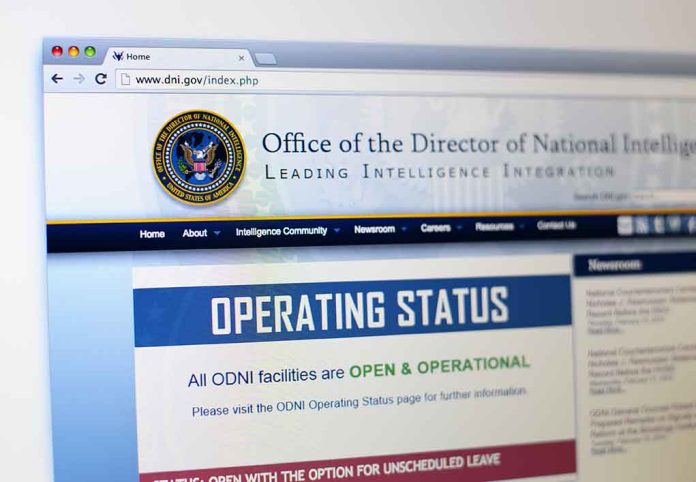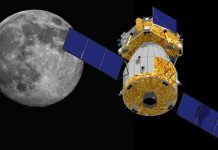
In a surprising turn of events, Tulsi Gabbard, former Democratic congresswoman and Iraq war veteran, has been confirmed as the new Director of National Intelligence, marking a significant shift in her political career and the landscape of U.S. intelligence leadership.
Top Takeaways
- The Senate confirmed Tulsi Gabbard as Director of National Intelligence in a close 52-48 vote, largely along party lines.
- Gabbard’s confirmation highlights Trump’s continued influence over the GOP, with only Sen. Mitch McConnell breaking ranks to vote against her.
- Concerns were raised about Gabbard’s past meeting with Bashar al-Assad, comments about Russia, and stance on government surveillance.
- Gabbard reversed her position on pardoning Edward Snowden and softened her criticism of FISA’s Section 702 during her confirmation hearing.
- The confirmation reflects Trump’s efforts to reshape the federal government and the influence of his “Make America Great Again” base.
A Narrow Victory for Gabbard
The Senate’s vote on Wednesday to confirm Tulsi Gabbard as the new Director of National Intelligence has sent ripples through Washington’s political circles. In a tight 52-48 vote, largely split along party lines, Gabbard secured her position as the overseer of 18 U.S. intelligence agencies and as a key advisor to the president on matters of national security.
This confirmation marks a significant milestone in Gabbard’s political journey, transitioning from a Democratic congresswoman to a top intelligence official in a Republican administration. The vote also underscores the ongoing influence of former President Trump within the GOP, as only Senator Mitch McConnell broke ranks to vote against her nomination.
BREAKING: Tulsi Gabbard confirmed as Director of National Intelligence. pic.twitter.com/vVP5hjsOY0
— Fox News (@FoxNews) February 12, 2025
Controversial Past and Shifting Positions
Gabbard’s path to confirmation was not without controversy. Her past meeting with Syrian President Bashar al-Assad, comments about Russia, and previous stances on government surveillance and Edward Snowden were significant points of contention during the confirmation process. However, during her confirmation hearing, Gabbard demonstrated a willingness to adapt her positions.
“Edward Snowden broke the law,” Gabbard stated, reversing her earlier support for pardoning the former NSA contractor.
This shift in stance, along with her softened criticism of the Foreign Intelligence Surveillance Act’s Section 702, helped sway some initially skeptical senators. Sen. Susan Collins, who had expressed early concerns, ultimately supported Gabbard’s nomination, citing shared views on restructuring the Office of the Director of National Intelligence.
Bipartisan Reactions
The confirmation has elicited strong reactions from both sides of the political aisle. While many Republicans rallied behind Gabbard, praising her military background and commitment to refocusing on core intelligence missions, Democrats voiced significant concerns.
“Instead of speaking fact and truth, Ms. Gabbard repeatedly speaks the language of falsities and conspiracy theories,” said Senate Minority Leader Chuck Schumer, encapsulating the Democrats’ apprehensions.
On the other hand, Republican senators like Lisa Murkowski of Alaska, while acknowledging lingering concerns, expressed appreciation for Gabbard’s commitment to streamline the agency. Senator Tom Cotton who chairs the Senate Intelligence Committee was also crucial in persuading uncertain senators to support Gabbard.
Looking Ahead: Challenges and Expectations
As Gabbard steps into her role as Director of National Intelligence, she faces the monumental task of leading the U.S. intelligence community through evolving geopolitical challenges at a time where Americans are highly skeptical of the intelligence agencies. Gabbard’s ability and openness to transform the intelligence agencies to align with President Trump’s vision will be a key component of determining her success.
“Ms. Gabbard, I submit that, if confirmed, the measure of your success will largely depend on whether you can return the ODNI to its original size, scope, and mission,” Cotton said.
The confirmation of Tulsi Gabbard as Director of National Intelligence marks a new chapter in U.S. national security leadership. As she takes the helm of the country’s intelligence apparatus, all eyes will be on how she balances her diverse background with the demands of this pivotal role in safeguarding America’s interests on the global stage.






















